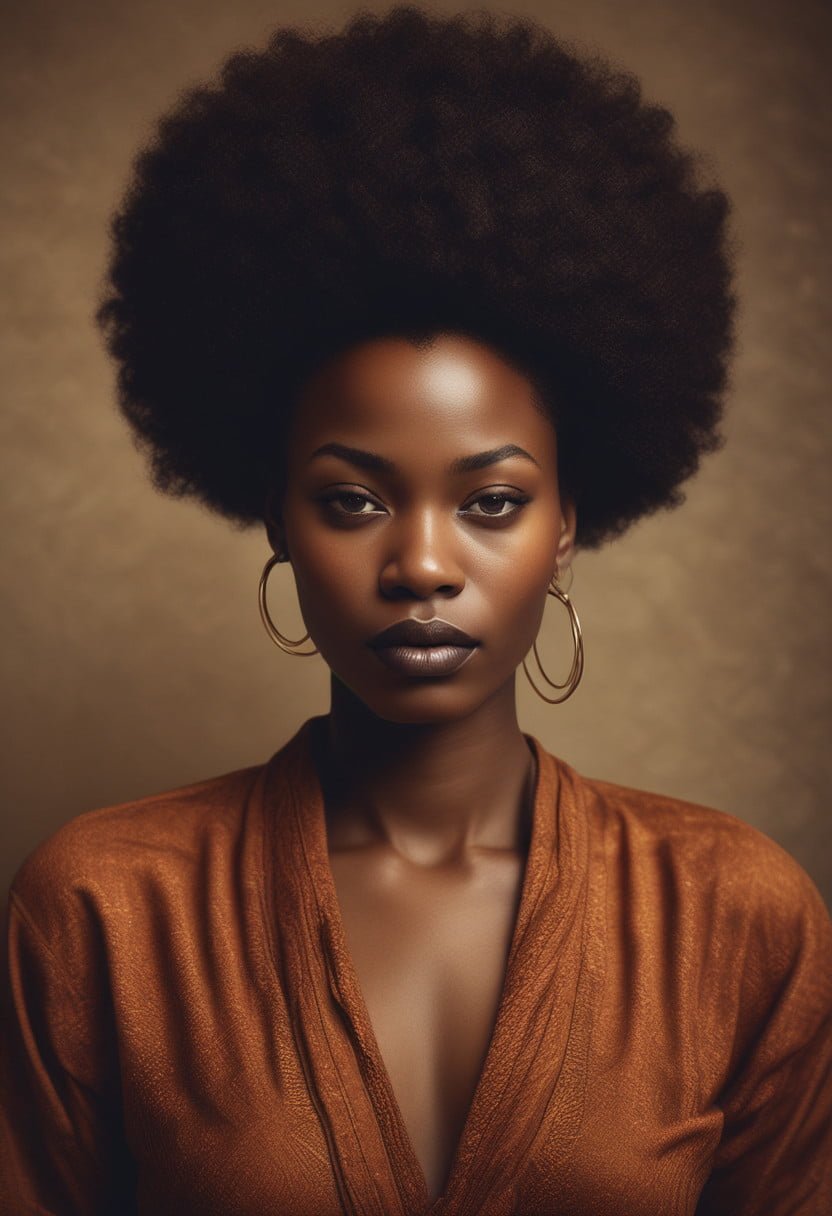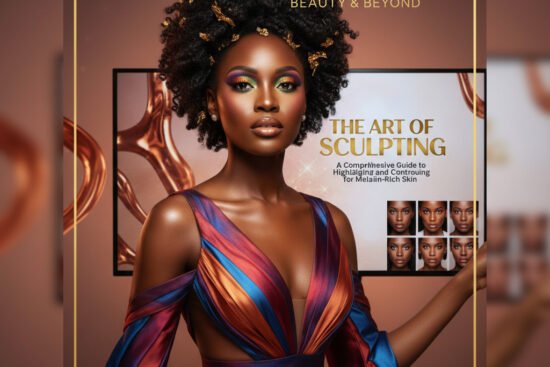
You are about to discover the secrets of how black women protect their natural hair and find out which is the best brand for natural hair care. From effective hairstyles to essential products, you will learn all the tips and tricks to keep your natural hair healthy, strong, and beautiful. By the end of this article, you’ll have the knowledge and confidence to embrace and care for your natural hair like never before. So, get ready to unlock the secrets to gorgeous natural hair!
Understanding Natural Hair
The science of black hair
Understanding the science behind black hair is essential for proper care and maintenance. Black hair, or type 4 hair, is unique due to its tightly coiled texture. The coils create a natural barrier, making it difficult for moisture to penetrate the hair shaft. This is why black hair tends to be dry and prone to breakage. Additionally, the tight curls can make it challenging to detangle and style.
Importance of understanding your hair type
Each person’s hair is unique, even within the same racial or ethnic group. It’s important to understand your specific hair type within the category of black hair, as this will guide your hair care routine. Type 4 hair is further categorized into 4A, 4B, and 4C, with 4C being the tightest coil pattern. Knowing your hair type helps you select appropriate products and techniques to maintain healthy, beautiful hair.
Challenges faced with type 4 hair
Type 4 hair poses several challenges that require special attention. The coils make it prone to tangling, which can lead to breakage if not properly handled. Type 4 hair also tends to be dry, which means it requires more moisture to keep it healthy and prevent breakage. Understanding these challenges is crucial for developing effective strategies to maintain and care for type 4 hair.
Hydration and Moisturizing Strategies
Understanding the role of water
Water is the foundation of hydration and moisturization for type 4 hair. Hydrating your hair involves applying water or water-based products to ensure that each strand is thoroughly moisturized. Water helps to soften the hair, making it more pliable and easier to manage. It also helps the hair to retain moisture, keeping it hydrated and reducing dryness and breakage.
Choosing the right oils and butters
In addition to water, oils and butters play a key role in moisturizing type 4 hair. These natural oils and butters provide nourishment, seal in moisture, and help to prevent moisture loss. Some popular oils and butters for type 4 hair include jojoba oil, coconut oil, shea butter, and avocado oil. Experimenting with different oils and butters will help you find the ones that work best for your hair.
Layers of Moisture: The LOC and LCO Methods
The LOC (Liquid-Oil-Cream) and LCO (Liquid-Cream-Oil) methods are popular moisture retention techniques for type 4 hair. These methods involve layering products in a specific order to maximize moisture retention. The LOC method starts with a water-based leave-in conditioner, followed by a sealing oil, and finishes with a moisturizing cream or butter. The LCO method follows the same principle but reverses the order, starting with a leave-in conditioner, followed by a moisturizing cream or butter, and finishing with a sealing oil. Experiment with both methods to find the one that works best for your hair.
Deep Conditioning Treatments
Benefits of regular deep conditioning
Deep conditioning is a crucial step in maintaining healthy, moisturized, and strong type 4 hair. Regular deep conditioning treatments provide intense hydration, strengthen the hair strands, and improve overall elasticity. Deep conditioning also helps to repair and restore damaged hair, reduce breakage, and enhance the hair’s natural luster and shine. Incorporating deep conditioning into your hair care routine can significantly improve the health and appearance of your type 4 hair.
Choosing the right deep conditioner
When selecting a deep conditioner for type 4 hair, it’s important to consider ingredients that provide maximum moisture and nourishment. Look for deep conditioners that are rich in natural oils, such as olive oil, argan oil, and castor oil. Additionally, ingredients like shea butter, aloe vera, and honey can also provide excellent hydration and nourishment. Avoid deep conditioners with harsh chemicals or sulfates, as these can strip the hair of moisture and cause further damage.
DIY deep conditioning treatments
If you prefer natural and homemade remedies, you can make your own deep conditioning treatments for type 4 hair. Some popular DIY options include avocado and banana masks, coconut milk and honey treatments, and aloe vera and olive oil mixtures. These natural ingredients are known for their moisturizing and nourishing properties, providing your type 4 hair with the hydration it needs. Experiment with different DIY recipes to find the ones that work best for your hair.
Effective Washing and Detangling Techniques
Understand the fundamentals of wash day
Wash day is a crucial step in the hair care routine for type 4 hair. It involves properly cleansing the scalp and hair while maintaining moisture and minimizing breakage. When washing type 4 hair, it’s important to use a sulfate-free shampoo or co-wash, as sulfates can strip the hair of its natural oils and cause dryness and breakage. Additionally, avoid using hot water, as this can also dry out the hair. Instead, opt for lukewarm or cool water to retain moisture.
How to properly detangle natural hair
Detangling type 4 hair requires patience, gentleness, and the right tools. Start by applying a detangling conditioner or a moisturizing leave-in conditioner to soften the hair. Use a wide-toothed comb or a detangling brush to carefully remove any knots or tangles, starting from the ends and working your way up to the roots. Be gentle and avoid pulling or yanking the hair, as this can lead to breakage. Detangling in small sections can also make the process easier and less damaging.
Selecting the best tools for detangling
Choosing the right tools for detangling type 4 hair is essential to minimize breakage. Wide-toothed combs, detangling brushes with flexible bristles, and even your fingers can be effective tools for detangling. Avoid using fine-toothed combs or brushes with stiff bristles, as these can cause excessive pulling and breakage. Additionally, applying a detangling spray or using a leave-in conditioner can help to further soften the hair and make detangling easier.
Importance of a Good Hair Diet
Role of nutrition in hair health
Maintaining a healthy diet is not only important for overall health but also for the health of your hair. Consuming a well-balanced diet that is rich in vitamins, minerals, proteins, and healthy fats can promote hair growth, strength, and overall vitality. Nutrients such as vitamin A, vitamin E, biotin, iron, zinc, and omega-3 fatty acids are particularly beneficial for maintaining healthy hair.
Vitamins and minerals for hair growth
Certain vitamins and minerals play a crucial role in stimulating hair growth and maintaining scalp health. Vitamin A promotes the production of sebum, a natural oil that moisturizes the scalp and keeps the hair follicles healthy. Biotin helps to strengthen the hair and prevent breakage, while vitamin E improves blood circulation to the scalp, promoting hair growth. Iron and zinc are essential for healthy hair growth, as they assist in carrying oxygen and nutrients to the hair follicles.
Foods that promote healthy hair
Incorporating hair-healthy foods into your diet can make a noticeable difference in the health and appearance of your type 4 hair. Foods rich in protein, such as lean meat, fish, beans, and lentils, provide the building blocks for hair growth and strength. Leafy greens like spinach and kale are packed with vitamins and minerals that nourish the hair follicles. Additionally, foods like eggs, nuts, and avocados contain healthy fats that moisturize the hair from within.
Using Protective Styles to Minimize Breakage
Why protective styles are essential
Protective styles play a crucial role in minimizing breakage and promoting hair growth. By putting the ends of the hair away and reducing manipulation, protective styles help to protect the hair from environmental damage and reduce friction. This, in turn, helps to retain length and reduce breakage, allowing the hair to grow longer and healthier. Protective styles also offer versatility, allowing you to switch up your look while giving your hair a break.
Popular protective styles
There are numerous protective styles to choose from, depending on your preferences and hair length. Some popular protective styles for type 4 hair include braids, twists, buns, weaves, wigs, and updos. These styles can be achieved using your natural hair or with the help of extensions or hairpieces. Experiment with different styles to find the ones that work best for your hair and personal style.
How to care for hair while in a protective style
Proper care is still necessary even when wearing a protective style. Moisturize your hair before installing the style and continue to moisturize your scalp and hair while the style is in place. Avoid over-manipulation and excessive tension, as this can cause breakage. It’s also important to maintain a healthy scalp by cleansing and moisturizing it regularly. Lastly, remember to give your hair breaks between protective styles to allow for proper cleansing and conditioning.
Choosing the Right Hair Products
Deciphering product ingredients
Understanding product ingredients can be overwhelming, but it’s crucial for selecting the right products for your type 4 hair. Look for products that are free of sulfates, parabens, mineral oil, and silicones. These ingredients can strip the hair of moisture, cause build-up, and block moisture from penetrating the hair shaft. Instead, opt for products that are specifically formulated for type 4 hair and contain natural ingredients that provide moisture and nourishment.
Identifying harmful chemicals
Certain chemicals should be avoided in hair products, as they can be harmful to your type 4 hair. One common culprit is sodium lauryl sulfate (SLS), a harsh detergent that can strip the hair of its natural oils and cause dryness. Other chemicals to watch out for include parabens, which act as preservatives but have been linked to hormonal disruption, and formaldehyde-releasing preservatives, which can cause scalp irritation and damage.
The best brands for natural hair care
There are several reputable brands that cater specifically to natural hair care and offer a wide range of products for type 4 hair. Some popular brands include SheaMoisture, Cantu, Mielle Organics, Carol’s Daughter, and As I Am. These brands often use natural and nourishing ingredients to provide maximum moisture and care for type 4 hair. Experimenting with different brands and product lines can help you find the ones that work best for your hair.
Nighttime Hair Care Routines
The importance of a nighttime routine
Having a nighttime hair care routine is essential for maintaining the health and integrity of your type 4 hair. While you sleep, your hair can become tangled, dry, or damaged due to friction with your pillow or bed sheets. A nighttime routine helps to minimize these potential issues and ensures that your hair remains moisturized and protected overnight.
Wrapping or plaiting hair before bed
One common nighttime hair care technique is to wrap or plait the hair before bed. Wrapping involves gently brushing the hair around the head and securing it with a satin scarf or bonnet to prevent friction and preserve styling. Plaiting, on the other hand, involves dividing the hair into sections and braiding it loosely. This helps to reduce tangling and keeps the hair in place while you sleep.
Using silk or satin pillowcases
Another option for nighttime hair care is using silk or satin pillowcases. Unlike cotton pillowcases, which can cause friction and absorb moisture from the hair, silk or satin pillowcases create a smoother surface for the hair to glide on. This helps to reduce tangles, minimize breakage, and preserve moisture in your type 4 hair. Investing in silk or satin pillowcases can be a game-changer for maintaining healthier hair.
Maintaining Scalp Health
Understanding the link between scalp health and hair growth
A healthy scalp is vital for promoting hair growth and maintaining strong, healthy hair. The scalp provides the foundation for the hair follicles, and if it is not in good condition, hair growth can be compromised. Scalp conditions such as dandruff, itchiness, or inflammation can disrupt the hair growth cycle and lead to hair loss and breakage. Therefore, maintaining scalp health is key to achieving healthier, longer type 4 hair.
Scalp massages and their benefits
Scalp massages can be a simple yet effective way to stimulate blood flow to the scalp and promote hair growth. They help to relax the scalp muscles, increase circulation, and distribute natural oils throughout the hair. Regular scalp massages also help to reduce stress, which is known to contribute to hair loss. You can use your fingertips or a scalp massaging tool to gently massage your scalp for a few minutes each day.
Treating common scalp issues like dandruff and itchiness
Dandruff and itchiness can be common scalp issues experienced by individuals with type 4 hair. These issues can be caused by dryness, product build-up, or underlying scalp conditions. Treating dandruff and itchiness involves using anti-dandruff shampoos or natural remedies that target the specific cause. It’s important to maintain a consistent cleansing routine, avoid using heavy products, and moisturize the scalp to help alleviate these issues.
Dealing with Hair Damage and Setbacks
Signs of hair damage
Recognizing the signs of hair damage is crucial for addressing and preventing further damage. Common signs of hair damage in type 4 hair include excessive breakage, split ends, dryness, dullness, and a lack of elasticity. If your hair is experiencing these symptoms, it may be time to evaluate your hair care routine and make necessary changes to promote healthier hair growth.
Recovery treatments and strategies
Recovering from hair damage requires a combination of patience, proper care, and the right treatments. Deep conditioning treatments, protein treatments, and hot oil treatments can help to restore moisture, strength, and shine to damaged type 4 hair. Trimming off split ends regularly is also important to prevent further breakage and promote healthier growth. Additionally, adopting a comprehensive hair care routine and minimizing damaging practices can aid in the recovery process.
Identifying habits that lead to damage
Understanding the habits or practices that may be contributing to hair damage is essential for establishing healthier hair care routines. Some common habits that can damage type 4 hair include excessive heat styling, over-manipulation, using harsh chemicals or tools, and neglecting regular deep conditioning. Identifying these habits and making conscious changes to avoid them can help to minimize damage and promote healthier hair growth.
Which is the best brand for natural hair care?
Choosing the best brand for natural hair care is subjective and depends on personal preferences and hair needs. However, several brands have gained recognition and popularity within the natural hair community. SheaMoisture, known for its natural ingredients and diverse product range, is highly regarded for providing moisture and nourishment to type 4 hair. Cantu is another popular brand that offers affordable and effective products for natural hair. Mielle Organics is praised for its use of high-quality ingredients, while Carol’s Daughter and As I Am have also gained a loyal following for their natural hair care offerings. Ultimately, the best brand for natural hair care is one that aligns with your specific hair needs and provides the desired results.











